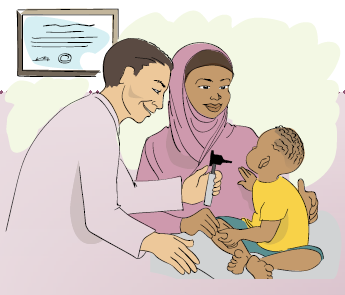Changing the Stigma of Mental Health: One Question at a Time
Although I am a mom of teenagers, my thoughts below are relevant for parents of children of all ages.

“How’s it going?”
For most people, this is a harmless and easy question to answer. My guess is that the most common response is something like “great” or “things are good.” But for me, asking how things are going is the question I dread the most.
Why?
I have two beautiful, smart and talented teenage boys. Both boys suffer from a brain disorder. Last year, my younger son was diagnosed with a serious mental illness – specifically schizophrenia. And while it’s not as soul-crushing as our younger son’s diagnosis, my older son was recently diagnosed with Tourette Syndrome. Both sons suffer from diagnoses that are stigmatized.
Life is hard. And exhausting. And sometimes, it’s really tough to find that proverbial silver lining.
So back to that question. As soon as someone asks me how things are going, I find that I have a choice to make. I can be the ray of sunshine that people have come to expect from me. I plaster a smile on my face and say, “Great! Thanks for asking.” But that’s a lie.
Authenticity is a cherished value of mine.
 Or there is my Debbie Downer persona (Queuing the “Wah Wah” sound effects). Someone asks the question, and the next thing I know, I am spilling out everything ending with how hard it is to get up each morning to face whatever challenges await me for the day.
Or there is my Debbie Downer persona (Queuing the “Wah Wah” sound effects). Someone asks the question, and the next thing I know, I am spilling out everything ending with how hard it is to get up each morning to face whatever challenges await me for the day.
While authentic, I always feel awful when this happens. It’s not fair to the person asking (who probably was only expecting a “great” or “things are good”), and I avoid going down this road as often as possible. My go-to response has been to deflect. My typical answer has been, “We are hanging in there and by the way, how is your mom, dad, son, daughter, spouse, dog, best friend or (fill in the blank)?”
If either son was struggling with diabetes, Crohn’s Disease, asthma or any number of childhood conditions, I believe the dreaded question would be easier to answer. But, as I said, there is a stigma surrounding mental illness and Tourette Syndrome.
It’s not a fair stigma. Both disorders are just misunderstood.
Maybe it’s time to stop avoiding the question and increase awareness of mental health challenges and other brain/neurological disorders. So from now on, I am pledging to respond to “How’s it going?” as follows:
 “Thank you for asking. As you know/may not be aware of, our 14-year-old son was diagnosed with schizophrenia and our 16-year-old with Tourette Syndrome. Both sons have their good days, bad days and sometimes very bad days. But with the unconditional love that we have for our sons and the support of our family and friends, we are doing OK. Each disorder has its challenges, but it doesn’t define who they are. Our sons are beautiful, smart and talented teenagers. And while we don’t know what their future holds, we continue to have HOPE.”
“Thank you for asking. As you know/may not be aware of, our 14-year-old son was diagnosed with schizophrenia and our 16-year-old with Tourette Syndrome. Both sons have their good days, bad days and sometimes very bad days. But with the unconditional love that we have for our sons and the support of our family and friends, we are doing OK. Each disorder has its challenges, but it doesn’t define who they are. Our sons are beautiful, smart and talented teenagers. And while we don’t know what their future holds, we continue to have HOPE.”
Stigmas exist because of fear and lack of knowledge, understanding and awareness. By being open to these difficult conversations, maybe one day parents, like me, will stop avoiding questions about our children’s challenges and teach the world how to embrace their differences.
Do you have a story to share about engaging families respectful of their personal challenges? Consider submitting a news article at Maryland Families Engage.




